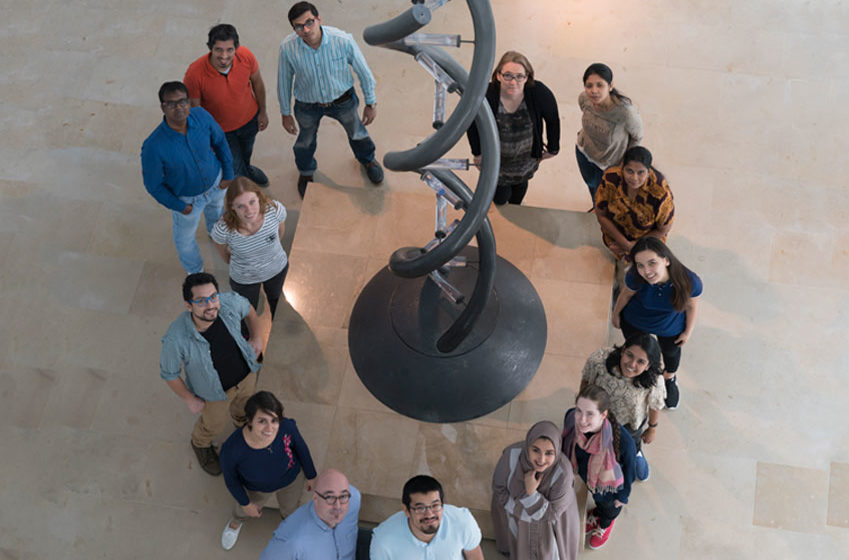
Our research aims to gain detailed and molecular understanding of fundamental epigenetic processes. In particular, we are investigating how the chemical modifications of chromatin are functionally translated in a cellular environment. Here, our focus is on specialized proteins, RNAs and small cellular signaling molecules. To address the complex interplay of these factors from multiple angles, our laboratory is applying highly interdisciplinary approaches. These include advancing technologies for establishing and analyzing complex chromatin systems in the test tube by applying biochemistry and biophysics, molecular and cellular biology studies of tissue culture cells and the small nematode C. elegans for investigating essential chromatin components and global and systematic analyses of the general modules and networks of epigenetic regulation.
To obtain significant insights into chromatin regulation, our work aims to span the gap between complex studies of cellular and organismal systems in vivo and molecular analyses of recombinant and synthetic components in vitro. Our approach to the ‘biochemistry of epigenetic phenomena’ is highly multidisciplinary and is centered around the following research themes:
- Recruitment mechanisms and regulation of multi-domain reader proteins of chromatin modifications: UHRF1
- Regulation of chromatin structure and function by nuclear phosphatidylinositol phosphates
- Molecular dissection of the DNA maintenance methylation machinery and its link to lipid metabolism
- Analyzing the biological role of proteins binding to chromatin marks
- Interplay of linker histones and H3 modifiability
- Reconstitution and analysis of complex chromatin systems in vitro
For more details, please refer to our laboratory’s main webs site: Click Here